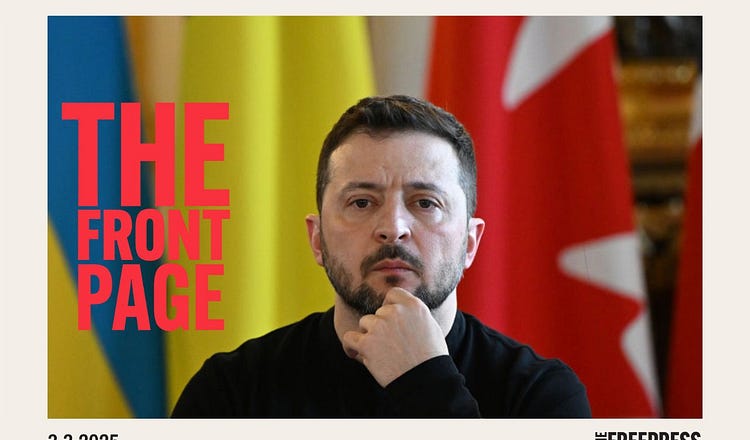The Ukraine Crisis: What We’re Thinking—and Debating

Ukraine’s president Volodymyr Zelensky at the European leaders’ summit in London. (Justin Tallis via Getty Images)
Victor Davis Hanson, Christopher Caldwell, Michael Oren, Batya Ungar-Sargon, Eli Lake, and more.
680
It’s Monday, March 3. This is The Front Page, your daily window into the world of The Free Press—and our take on the world at large. Today, we’re focusing on one big thing: the fallout from Friday’s extraordinary Oval Office spat.
Three days after the diplomatic earthquake between President Trump, Vice President Vance, and Ukrainian president Volodymyr Z…
Continue Reading The Free Press
To support our journalism, and unlock all of our investigative stories and provocative commentary about the world as it actually is, subscribe below.
$8.33/month
Billed as $100 yearly
$10/month
Billed as $10 monthly
Already have an account?
Sign In

